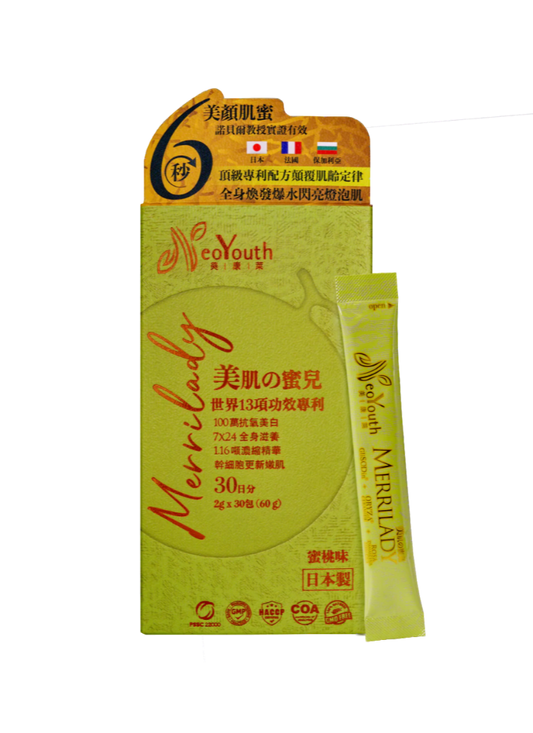Do you often feel tired and sleepy? Even with sufficient sleep each day, you may still frequently feel lethargic or have difficulty concentrating. This chronic fatigue is becoming increasingly common. NeoYouth explores the common causes of fatigue among urban dwellers in Hong Kong, including the general reasons for constant tiredness, and finally suggests solutions for persistent sleepiness.
How can one keep oneself from getting tired all day?
What constitutes "constant fatigue"? If you frequently feel lethargic, unable to concentrate, physically weak, or even constantly sleepy during the day, this is a typical case of "constant fatigue." If you still feel tired upon waking up in the morning even after a full night's rest, it will affect your daily energy and physical stamina, and even impact your work efficiency and quality of life. If fatigue persists or recurs for more than six months, it can be classified as chronic fatigue syndrome.
The reason why I am always so naughty and eye-catching
There are many reasons why you feel tired and sleepy all day long. They can be mainly divided into several aspects, including:
Fatigue caused by sleep problems
Sleep directly affects a person's mental state, and sleep disorders are a common problem among urban dwellers, being one of the main causes of daily fatigue, with sleep apnea being the most common. When a patient sleeps, the airway muscles relax, leading to airway obstruction and interruption of breathing. This can last for tens of seconds, and in severe cases, it can occur hundreds of times a night. Patients have difficulty entering deep sleep, resulting in persistent daytime fatigue and sleepiness.
Restless legs syndrome is also a common sleep disorder in which patients experience leg discomfort and a desire to move during sleep, leading to sleep interruptions and daytime fatigue.
Teenagers or people who overuse electronic devices at night may also suffer from delayed sleep phase syndrome. These individuals have difficulty falling asleep at night, often only able to fall asleep after 2 a.m., but must wake up early for school or work, leading to habitual sleep deprivation.
Chronic fatigue caused by disease factors
One reason why individuals experience constant fatigue is chronic fatigue caused by illness. Many diseases can lead to fatigue, including endocrine disorders (such as hypothyroidism), anemia, autoimmune diseases, chronic pain syndromes, and chronic liver disease. These diseases often affect the body's energy metabolism system, making people feel tired, weak, and sleepy all day.
It is particularly important to note that heart disease is a common cause of chronic fatigue. Poor heart function can lead to insufficient blood circulation and oxygen supply, making one prone to daytime fatigue and drowsiness. Additionally, poorly controlled blood sugar levels in diabetic patients can also easily cause poor sleep quality and daytime fatigue.
The influence of psychological factors
Mental fatigue is also a significant cause of tiredness and drowsiness. It is often caused by emotional stress, anxiety, and depression, all of which negatively impact the body and increase feelings of fatigue. Prolonged exposure to high-stress environments makes individuals more prone to feeling tired and sleepy all day. Therefore, proper stress management and emotional regulation are crucial for alleviating fatigue symptoms.
Lifestyle and environmental factors
Lifestyle and environmental factors can significantly affect sleep quality and fatigue levels. Common effects include:
- Working shifts or having irregular schedules can disrupt your biological clock, making you prone to daytime sleepiness and difficulty falling asleep at night.
- Using an unsuitable mattress (too soft or too hard) can easily cause back pain and poor blood circulation, affecting deep sleep.
- Prolonged use of electronic devices (such as mobile phones and computers) before bed can suppress melatonin secretion due to the blue light emitted from the screen, making it harder to fall asleep and reducing sleep quality.
- Lack of exercise can impair cardiopulmonary function and the circulatory system, making you more prone to fatigue during the day.
- Poor dietary habits, such as a diet high in oil, salt, and sugar, can increase the body's metabolic burden and lead to fatigue.
- Excessive intake of caffeine or alcohol can also affect sleep quality.
Solutions for constant sleepiness
What methods can help with constant sleepiness and fatigue?
Improve sleep
Sleep deprivation is one of the main causes of fatigue, so improving sleep is the primary way to solve daily eye strain. Develop a regular sleep schedule, trying to go to bed and wake up at the same time every day, even on weekends and holidays, and avoid excessive late nights or chronic sleep deprivation. In addition to regular sleep, it's also important to pay attention to sleep hygiene and maintain good sleep-related habits:
- Before bed, relax your mind and body and avoid using electronic devices, especially mobile phones and tablets, as the blue light emitted from the screen can affect the secretion of melatonin, making it difficult to fall asleep.
- The bedroom environment should be kept quiet, dark, and at a moderate temperature. The bed should only be used for sleeping, and it is not advisable to work or watch TV in bed.
- Avoiding caffeine and large meals in the afternoon or evening, and reducing daytime naps, can help improve sleep quality.
Adjusting lifestyle habits
Improving physical fitness and reducing stress are important for improving sleep and relieving fatigue; consider the following:
- Moderate exercise: Appropriate physical activity can improve sleep quality. Choose a suitable type of exercise based on your individual physical condition, such as walking, jogging, or yoga, to promote blood circulation and improve metabolism.
- A balanced diet: Ensuring you get the right nutrients is key to maintaining good health and reducing fatigue. A balanced diet should include plenty of protein, vegetables, fruits, and grains.
- Establish relaxation habits: Learning relaxation techniques, such as deep breathing, meditation, reading, listening to music, or meeting with friends, can help reduce stress and relieve tension accumulated during study or work.
- Adequate rest and time allocation: Avoid overwork and excessive fatigue. Properly allocating work and rest time, and taking short breaks periodically, can help improve focus and reduce fatigue.
The help of nutritional supplements
If you have improved your sleep and lifestyle habits but still feel tired all day, there are many nutritional supplements available that can help with sleepiness and fatigue, including:
- Vitamin B supplements: Vitamin B can affect energy levels, brain function, and cellular metabolism. It helps the body convert food into energy through metabolic processes, helps relieve fatigue, and improves brain function.
- Melatonin: For fatigue caused by sleep problems, melatonin supplements can help improve sleep quality. Taking melatonin can make it easier to fall asleep and provide longer rest.
- Maca: Maca is a traditional herb from the Andes Mountains of South America, known as a "natural energy supplement." It belongs to the "adaptogen" type of health food, helping the body adapt to stress, improve physical strength and endurance, and also helping to reduce chronic fatigue, enhance mental alertness, and promote recovery. It is especially suitable for people who feel chronically tired or have high work stress.
NeoYouth NMN from Japan: A solution to daily fatigue.
There are many solutions for constant eye strain and fatigue. In addition to the nutritional supplements mentioned above, supplementing with NMN is a new option for improving fatigue. NMN is a natural energy booster because it can be converted into NAD+ in the body, improving the function of mitochondria, which are the energy factories of cells, enhancing energy metabolism, and thus reducing fatigue. It is an ideal substitute for coffee.
NeoYouth NMN15000+12000Ex from Japan offers a premium anti-aging formula , making it your ideal choice. This product contains 100% high-purity, high-quality NMN, along with four patented ingredients to effectively improve fatigue and sleep problems. NeoYouth also offers Everest's top-tier NMN 21,000mg + GliSODin® 6,000mg , combining high-dose NMN with the French patented melon-extracted antioxidant enzyme GliSODin®. This rapidly boosts NAD+, promotes mitochondrial repair and cellular energy production, and combats free radicals with powerful antioxidant properties, reducing cellular oxidative stress and helping to boost your energy. Both products share the following characteristics:
- It helps repair damaged gene and cell DNA and efficiently activates longevity genes.
- Significantly increases NAD+ levels and accelerates bodily recovery.
- Boost immunity and promote metabolism
- Effectively helps eliminate fatigue and improve exercise endurance
- Improves insomnia and enhances memory
- Made in Japan, with multiple certifications, quality guaranteed.
If you're constantly tired, start by addressing the underlying causes and choose a solution. If you experience persistent fatigue and poor sleep, in addition to improving your sleep and lifestyle habits, you can try NeoYouth NMN products from Japan to regain a more energetic life.





